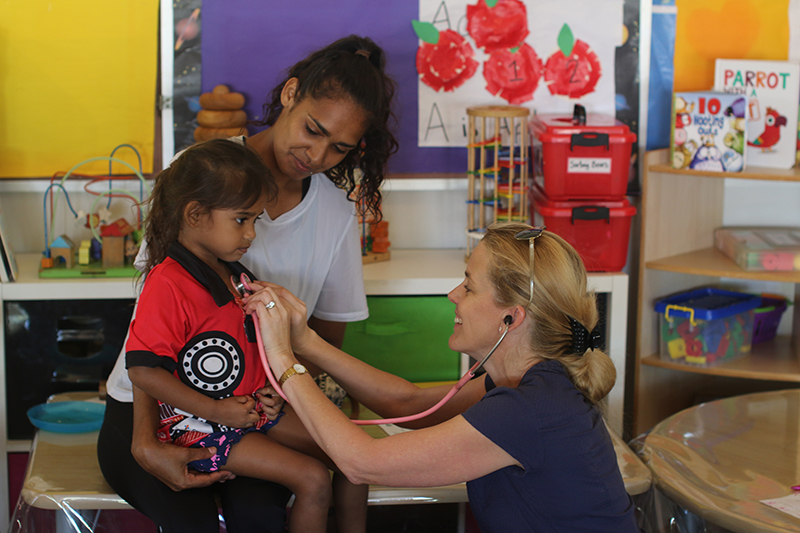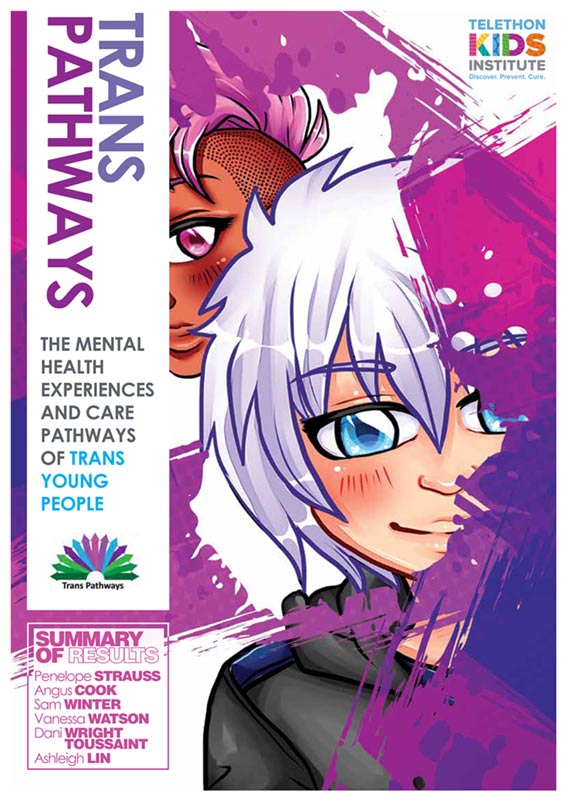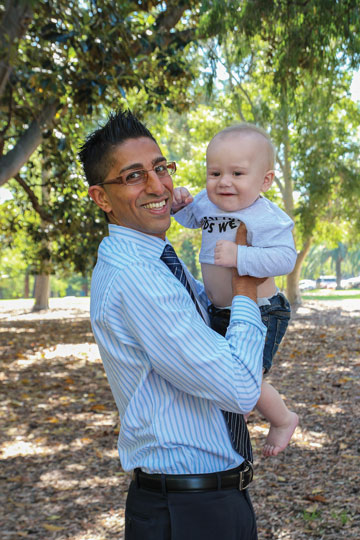Search

News & Events
Lancet paper finds hormone therapy for trans young people can improve mental health - but authors say more research is desperately neededA Lancet-published review of the evidence around the use of gender-affirming hormones and surgery in trans children and adolescents has found such interventions can lead to a marked improvement in mental health outcomes and quality of life.

News & Events
Wet cough campaign aims to nip lung disease in the budThe Kids Research Institute Australia lung health researchers have launched a campaign to raise awareness of wet cough and lung disease in Aboriginal children.

News & Events
New CoLab funding supports innovative therapeutic playgroup trialIt’s hoped a new therapeutic playgroup being trialled in Perth will help parents and caregivers cut through the stress and become more confident.

News & Events
The Kids Research Institute Australia researchers share in TPCHRF fundingEight The Kids Research Institute Australia researchers are among those who have received grant funding from the Telethon-Perth Children’s Hospital Research Fund (TPCHRF).

News & Events
Register for the 2017 Annual Community Lecture: David Bloom on Child Health and the Wealth of Nations (Nov 1)Register now to attend this compelling talk at the Heath Ledger Theatre in Perth on the evening of Wednesday, November 1 2017.

News & Events
Trans young people at high risk of depression and suicideTrans Pathways is the largest ever survey conducted into the mental health of trans young people in Australia.

News & Events
Cheeky Jackson heads home after 7.5 month nightmareMichelle Pianta knew deep down something was very wrong with her seven-and-a-half month old son Jackson as she waited at Bunbury Hospital for his blood results.

News & Events
Drug find could represent big win for our little patientsDr Rishi Kotecha knows too well the devastation of a leukaemia diagnosis in a child, treating children as a consultant at Princess Margaret Hospital.

News & Events
New policy provides much needed focus on overlooked youthThe need for a WA Youth Health Policy has been evident for years. Now, with The Kids Research Institute Australia helping to drive the project, it is coming to fruition.

News & Events
Robot babies increase teen pregnancy ratesThese infant simulators are given to high school students to take care of as part of a teen pregnancy prevention program known as Virtual Infant Parenting.
